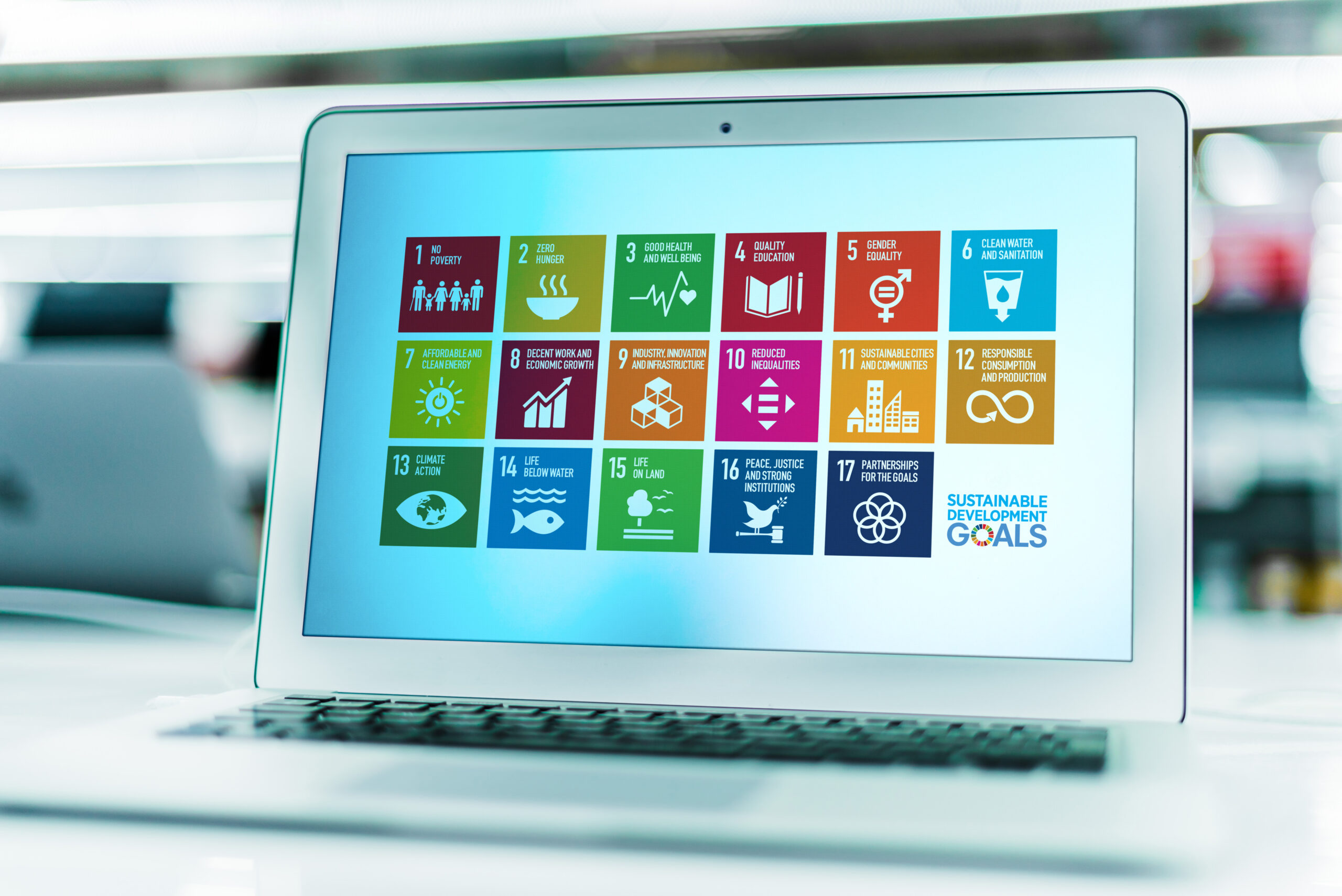New York, 25 September 2015. The General Assembly of the United Nations stands and roars with applause as the seventeen Sustainable Development Goals are officially adopted, bold universal intentions that would change the world by 2030. They acknowledge that the world’s development challenges, such as poverty, economic growth, and environmental impacts, are interconnected. Humankind’s greatest opportunities and gravest threats seldom exist in isolation and are, in truth, a mind-bogglingly complex machine of moving parts that all affect one another somehow.
Fast forward to the present day, and we are past halfway to that 2030 deadline. Are we on track to achieve the SDGs? No. COVID, the climate crisis, and conflicts have all slowed or even reversed progress on pretty much every goal. As the UN themselves put it, “cascading and interlinked crises are putting the 2030 Agenda for Sustainable Development in grave danger, along with humanity’s very own survival.”
So what am I meant to do about it? I’m just a bid pro.
Achieving these ambitious goals was always going to necessitate action not only from governments and civil society but from corporations, too. The SDGs are no doubt mentioned in your corporate responsibility report, but when did you last mention them in the narrative of a proposal? Working for an international humanitarian NGO, this has become an everyday occurrence for me. But if I reflect on my time in commercial bid writing, I’m not sure I had even heard of the SDGs, let alone referenced them in my writing.
The UN agreed that achieving the necessary balance of social, economic, and environmental sustainability would take the creativity, skills, and resources of all the world’s people.
And that’s where you come in. Because by virtue of your vocation, you stand at the crossroads of business development, social development, and environmental sustainability. If you enjoy any autonomy at all as a bid and proposal pro, you are free to think about what impact the business you are seeking to win (and the solution you are proposing) will have on people and the planet.
And you are free to frame that impact using the SDGs, which are handily broken down into 169 specific targets. Think of them as KPIs for our survival and progress. Take target 8.5, for example: “By 2030, achieve full and productive employment and decent work for all women and men, including for young people and persons with disabilities, and equal pay for work of equal value.” If your solution and any subcontracting/partnership arrangements therein insist women and men are paid equally for work of equal value, you are contributing to the achievement of this goal. So why not cite SDG 8: Decent Work and Economic Growth within your narrative to show your proposal is rooted in what the UN calls “a shared blueprint for peace and prosperity for people and the planet, now and into the future.”
Incorporating the SDGs into proposals carries distinct advantages. It not only aligns proposals with universal priorities that matter to most readers but also enhances your reputation as a bidding entity by showing your commitment to social and environmental responsibility. Quantifying and illustrating the anticipated impacts of the contract on specific SDGs can make proposals more compelling to individual evaluators who, contrary to popular belief, do have hearts. Whether you highlight only the positive SDG impacts or have the courage also to highlight the negative SDG impacts and how you will mitigate them depends largely on the risk appetite and maturity of your organisation.
How?
Implementing SDGs into proposals involves several steps. It begins with familiarising oneself with the goals and their specific targets to identify those relevant to a proposal. For example, if you’re writing a renewable energy project proposal, chances are it will align with SDG 7 (Affordable and Clean Energy) and SDG 13 (Climate Action).
The identified SDGs are then integrated into each stage of proposal development, eventually detailing how elements of the proposed statement of work will contribute to the SDGs. I think such mainstreaming generally works better than having a dedicated SDG section in your proposal, which can be jarring, is easily overlooked, and may not even be possible when bidding through a prescribed online portal format. The relevant headline goals, constituent indicators, or even specific targets could be mentioned where it feels advantageous – no need to shoehorn them in at every opportunity for the sake of it. The SDGs are linked above – why not bookmark them now?
Nobody said it was easy…
While arguably valuable, aligning proposals with SDGs poses challenges, such as demonstrating direct impacts on global challenges. This can be navigated by setting clear metrics for your claims to be included in any contract data requirements list (CDRL) to measure the actual impact on the goals. Your corporate responsibility folks will love you for this – consult them, and they’ll probably help you out.
Client expectations must also be managed, particularly when aligning with goals requiring long-term efforts to see substantial change. You aren’t promising the world here, and you’re just demonstrating that your organisation respects it.
The end is nigh…
Integrating Sustainable Development Goals into proposal writing isn’t merely a strategy to improve bid acceptance, highlight the social impact, and make a real contribution to global sustainability efforts. As the world navigates toward an uncertain future, proposal writers have a crucial role in negotiating the relationships between business objectives and global sustainability goals.
The plans and promises your organisation offers up to the world come to life through your personal initiative, your words, your graphics, and the days of your working life. When you win business, what you proposed will always be in the DNA of the projects that follow. You are editors of our collective destiny. What you do matters way more than you may think.
To quote the anthropologist Margaret Mead: “Never doubt that a small group of thoughtful, committed citizens can change the world; indeed, it’s the only thing that ever has.”



Join the Conversation